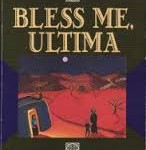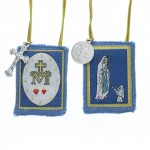A Short Glossary for Bless Me Ultima by Rudolf Anaya
 I just completed a wonderful read of Bless Me, Ultima, by Rudolf Anaya. As I work extensively in South Texas and the Rio Grande Valley, presenting my “Songs & Stories of Texas,” I’ve realized how important vocabulary is to students’ studies. I know that since 1972, the book has been a reading selection for high school (and I would assume junior high) readers. I encourage you to research the awards and recognition this book has earned. To help you and your students with this read, and in case you or some of your students are not bilingual, I selected 33 words that are probably new to many students and teachers. I added simple definitions as the words are used in the book. Some of the meanings of the Spanish sentences can be determined by context, but some cannot. There are so many good translation tools online that this should not present a problem. Teachers teaching this book may want to use this list as a quiz, review, or bellringer. I did not list any of the what might be considered as swear-words or crude language that is used in the book. Students probably already know these words and phrases anyway. I encourage the teacher/student to use the Internet to find pictures and more details of the words listed here. If you have studied this book extensively and I am wrong on any of these words, please email at rickeyp at bayou.com and I will make a correction or addition if it is warranted.
I just completed a wonderful read of Bless Me, Ultima, by Rudolf Anaya. As I work extensively in South Texas and the Rio Grande Valley, presenting my “Songs & Stories of Texas,” I’ve realized how important vocabulary is to students’ studies. I know that since 1972, the book has been a reading selection for high school (and I would assume junior high) readers. I encourage you to research the awards and recognition this book has earned. To help you and your students with this read, and in case you or some of your students are not bilingual, I selected 33 words that are probably new to many students and teachers. I added simple definitions as the words are used in the book. Some of the meanings of the Spanish sentences can be determined by context, but some cannot. There are so many good translation tools online that this should not present a problem. Teachers teaching this book may want to use this list as a quiz, review, or bellringer. I did not list any of the what might be considered as swear-words or crude language that is used in the book. Students probably already know these words and phrases anyway. I encourage the teacher/student to use the Internet to find pictures and more details of the words listed here. If you have studied this book extensively and I am wrong on any of these words, please email at rickeyp at bayou.com and I will make a correction or addition if it is warranted.
adobe – type of clay brick
atole – hot corn based beverage
bizcochitos – crisp lard- or butter-based cookie, flavored with cinnamon and anise.
bruja – witch
chicos – dried sweet corn
crudo – hungover
cuentos – songs
curandera – healer
doily – small lace mat placed under plate.
empaniditas – sweet cookies
el encanto – curse
farol – lantern
gabacha – white girl
grillos – crickets
llano – grassy plains
la llorona – ghostly, weeping woman
manzanilla – chamomile tea
molino – mill
la misa de gallo – midnight mass
mitote – dream,dance
novena – private or public prayers repeated for nine successive days
nopal – prickly pear cactus
pesadilla – nightmare
piñon – a small pine with edible seeds.
oshá – an herb, root used for healing.
ristras – strings of dried chile peppers.
scapular – necklace with religious and personal significance.
vaquero – cowboy
velorio – wake
Virgen de Guadalupe – Mexico’s patron saint, honored on Dec. 12.
yerba del masno – medicinal plant of the Southwest
yerba de la vívora (also víbora) medicinal plant
yucca – a plant of the agave family with stiff swordlike leaves.
*Teachers may use this list freely as long as credit is given to:
Rickey Pittman, Bard of the South, https:www.bardofthesouth.com.

